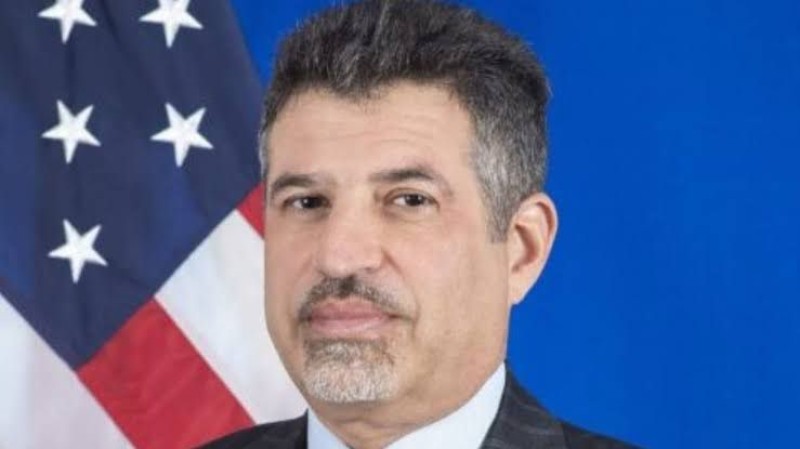Senate to Vote Again to End Aid to Saudi War in Yemen


The Senate will vote Wednesday on whether to cut off American military assistance for Saudi Arabia’s war in Yemen, preparing again to rebuke President Trump for his continued defense of the kingdom after the killing of the dissident journalist Jamal Khashoggi.
The Yemen vote sets up something of a one-two punch for senators hoping to defy the president. The second punch may land Thursday, when the Senate has the chance to give final passage to a resolution overturning the president’s declaration of a national emergency to secure funding for his border wall.
Passage of the measures would prompt the first vetoes of Mr. Trump’s presidency.
“The resolution we will vote on in the Senate tomorrow to end U.S. support for the Saudi-led war in Yemen is enormously important and historic,” Senator Bernie Sanders, independent of Vermont, said Tuesday in a statement. “This war is both a humanitarian and a strategic disaster, and Congress has the opportunity to end it.”
Supporters of the Yemen resolution have faced a long and grueling road to get the legislation onto the president’s desk. The Senate — led by the resolution’s authors, Mr. Sanders, Mike Lee, Republican of Utah, and Christopher S. Murphy, Democrat of Connecticut — first passed the measure 56 to 41 in December, but Paul D. Ryan, the speaker at the time, refused to take up the resolution.
His successor, Speaker Nancy Pelosi, did take it up, and the House easily passed it last month. But House Democrats inadvertently derailed the process by supporting a surprise procedural motion offered by Republicans to declare the chamber’s opposition to anti-Semitism. By attaching an unrelated amendment to the Yemen resolution, the House ended its “privileged” status, which would have forced the Senate to quickly take it up and send it to Mr. Trump.
Wednesday’s measure is essentially a do-over and will have to again clear the House. While it is expected to pass, it may not enjoy the same level of Republican support that it received in December, aides said.
The resolution gives the Senate another opportunity to condemn a nearly four-year conflict in Yemen that has killed thousands of civilians and inflicted a devastating famine. It also underscores the simmering anger among senators even in the president’s party at his administration’s tepid response to the killing of Mr. Khashoggi, a Virginia-based columnist for The Washington Post.
After first playing down his own intelligence officials’ reports that the Saudi crown prince, Mohammed bin Salman, was responsible for the killing, Mr. Trump then blew past a legally mandated deadline that required the White House to report to Congress whether it believed the prince was personally responsible for Mr. Khashoggi’s death.
The White House sent two aides from the State and Treasury Departments last week to a closed-door briefing before the Senate Foreign Relations Committee to try to defuse the senators’ rising anger. But senators on the committee, hungry for either a justification for why the White House defied the congressional mandate or information about the crown prince’s role in the killing, left unimpressed.
“It was a complete waste of time,” Senator Lindsey Graham, Republican of South Carolina, told reporters afterward.
Senator Marco Rubio, Republican of Florida, said it was time for the Senate to act, adding that the chamber “will have to decide whether it’s going to impose its own sanctions.”
But the Foreign Relations Committee, now overseen by Senator Jim Risch of Idaho, a Trump loyalist, has yet to mark up bipartisan legislation. The measure, introduced last month by Senator Robert Menendez of New Jersey, the ranking member of the committee, and Mr. Graham, would prohibit certain arms sales to Saudi Arabia and impose sanctions on individuals supporting the Houthis in Yemen.
“Seeing as the Trump administration has no intention of insisting on full accountability for Mr. Khashoggi’s murderers, it is time for Congress to step in and impose real consequences to fundamentally re-examine our relationship with the kingdom of Saudi Arabia and with the Saudi-led coalition in Yemen,” Mr. Menendez said in a statement.
Mr. Risch has pledged that the panel “will not let” the killing go. But he has also suggested that both the sanctions act and the Yemen vote would be ineffective.
“Saudi Arabia has engaged in acts that just are simply not acceptable. Unfortunately, as I said, we hear a lot of descriptions about the problem, but we don’t hear any answers,” he said at a hearing considering the nomination of the ambassador to Saudi Arabia. “There have been some modest suggestions that have been made, none of which would resolve the problem.”
AFP.

Riyadh — U.S. Ambassador to Yemen, Steven Fagin, on Monday underscored Washington’s commitment to the unity of the Presidential Leaders…

Abyan — The Southern Transitional Council (STC) in Yemen announced on Monday the launch of wide-scale military operations in Abyan province,…

Aden – Yemen is witnessing heightened political activity aimed at defusing tensions in the eastern provinces, where competing forces have vie…